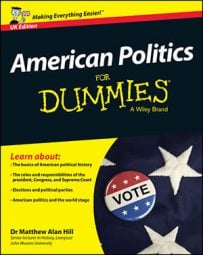The Federal Election Commission (FEC) is an independent agency created in 1975 by the U.S. Congress to regulate election campaign finance in the United States. The mission of the FEC is to administer and enforce the Federal Election Campaign Act (FECA) that governs the financing of federal elections. The FEC has jurisdiction over campaigns for the U.S. House, the U.S. Senate, the presidency and the vice presidency.
Historical background of the FEC
President Theodore Roosevelt recognized the need in 1905 for campaign finance reform and called for legislation to ban corporate political contributions. Congress enacted a series of statutes between 1907 and 1966 designed to limit the disproportionate influence of wealthy individuals and special interest groups on federal elections, regulate spending in campaigns for federal office, and deter abuses by mandating public disclosure of campaign finances.
In 1971, Congress passed the Federal Election Campaign Act (FECA) to consolidate earlier reform efforts. The Act instituted more stringent disclosure requirements for federal candidates, political parties and political action committees (PACs) but lacked a central administrative authority, which made enforcement difficult.
After the 1972 presidential campaign, Congress amended the FECA in 1974 to set limits on contributions by individuals, political parties and PACs and also established an independent agency, the Federal Election Commission (FEC) to enforce the law, facilitate disclosure and administer the public funding program. The FEC administered the first publicly funded presidential election in 1976. Congress made further amendments to the FECA in 1976 to address provisions ruled unconstitutional by the Supreme Court in Buckley v. Valeo.
Other major amendments were made in 1979 (to streamline the disclosure process and expand the role of political parties) and in 2002 with the Bipartisan Campaign Reform Act of 2002 (BCRA). The BCRA banned unregulated contributions to national party committees (often called “soft money” contributions), restricted issue advocacy ads, increased contribution limits and indexed certain limits for inflation. The Supreme Court in Citizens United v. FEC ruled portions of the BCRA unconstitutional, particularly the restrictions on issue ads.
Members of the FEC
The Federal Election Commission is composed of six members appointed by the president of the United States subject to confirmation by the U.S. Senate. Each member serves a six-year term. By law, no more than three commissioners can be members of the same political party and at least four votes are required for any official commission action. The chairmanship of the commission rotates among the members each year. The commissioners elect two members each year to act as chair and vice chair.
Public meetings of the FEC
The commission holds a public meeting each week where the commissioners adopt new regulations, issue advisory opinions, approve audit reports concerning Presidential campaign committees, and take other administrative action. The commissioners also meet regularly in closed sessions to discuss pending enforcement actions, litigation and personnel matters.
Official duties of the FEC
Although the commission’s name implies broad authority over U.S. elections, in fact its role is limited to the administration of federal campaign finance laws. The commission enforces limitations and prohibitions on contributions and expenditures, investigates complaints and prosecutes violations. Investigations are typically initiated by complaints from other candidates, parties and watchdog groups but any member of the public who believes that a campaign finance law has been violated may file a complaint.
The FEC also audits a limited number of campaigns and organizations for compliance, and administers the presidential campaign fund, which provides public funds to candidates for president and nominating conventions. The commission clarifies the FECA and the public funding statutes through regulations codified in Title 11 of the Code of Federal Regulations. The commission issues written advisory opinions to persons seeking guidance on the application of the campaign finance law to their own specific activities.
Most importantly, the FEC publishes reports filed by Senate, House of Representatives and presidential campaigns that list how much each campaign has raised and spent, and a list of all donors over $200, along with each donor’s home address, employer and job title. While these exhaustive campaign finance resources are available to everyone, the public rarely uses them.

